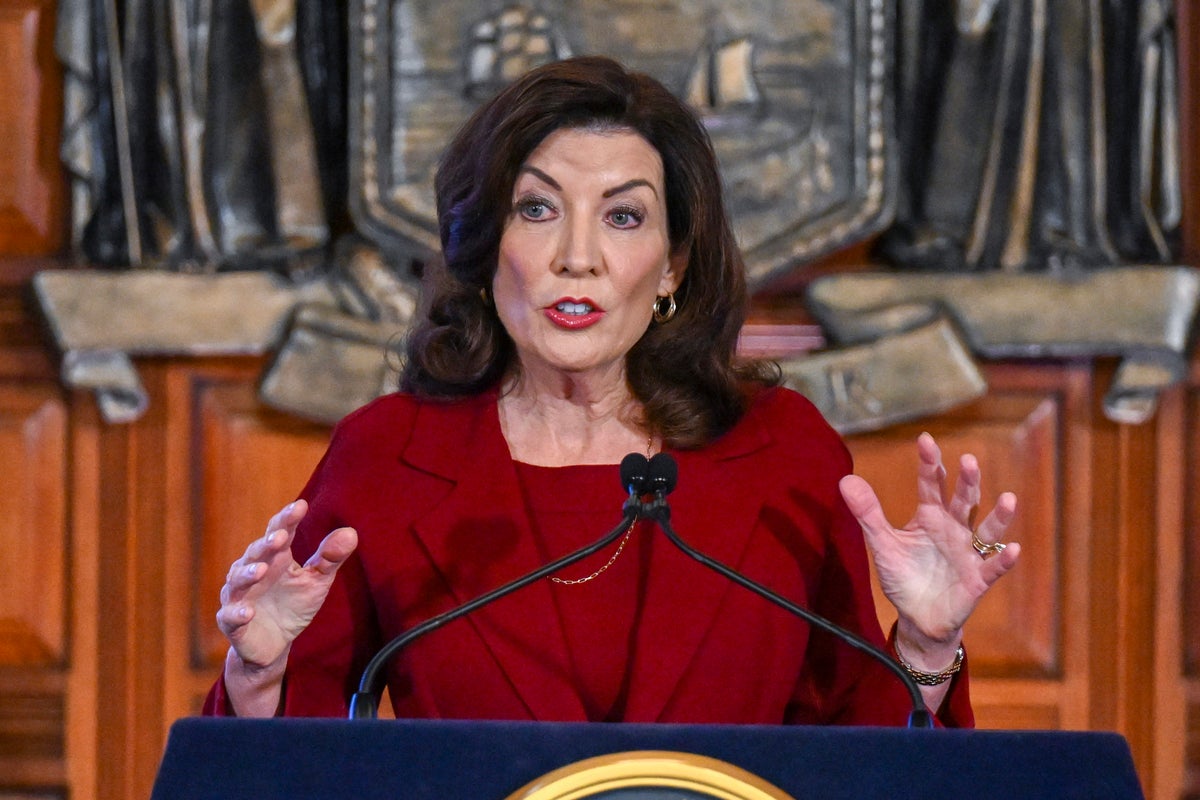
New York's governor vetoed a bill days before Christmas that would have banned noncompete agreements, which restrict workers' ability to leave their job for a role with a rival business.
Gov. Kathy Hochul, who said she tried to work with the Legislature on a “reasonable compromise" this year, called the bill “a one-size-fits-all-approach” for New York companies legitimately trying to retain top talent.
“I continue to recognize the urgent need to restrict non-compete agreements for middle-class and low-wage workers, and am open to future legislation that achieves the right balance," she wrote in a veto letter released Saturday.
The veto is a blow to labor groups, who have long argued that the agreements hurt workers and stifle economic growth. The Federal Trade Commission had also sent a letter to Hochul in November, urging her to sign the bill and saying that the agreements can harm innovation and prevent new businesses from forming in the state.
But in recent months, the legislation had come under fierce attack by Wall Street and top business groups in New York. They argued the agreements are necessary to protect investment strategies and keep highly-paid workers from leaving their companies with prized inside information and working for an industry rival.
While the agreements are often associated with top executives, about 1 in 5 American workers — nearly 30 million people — are now bound by noncompete agreements, according to the Federal Trade Commission.
For example, the sandwich chain Jimmy John's previously came under scrutiny for forcing its low-wage workers to sign noncompete agreements that prevented them from working for a nearby business for two years after they left. In 2016, the company reached a settlement with the New York attorney general agreeing to no longer enforce the agreements.
The Federal Trade Commission has proposed its own rule to eliminate all noncompete agreements nationwide under the idea that they unfairly reduce competition.
Peter Rahbar, an employment attorney who represents individuals dealing with noncompete issues, said he was disappointed the governor vetoed the bill.
“I view it as a missed opportunity to help employees and workers gain leverage in their negotiations with employers,” he said. “She is missing an important step that would help employees not only have freedom of choice on where they want to work, but deprive them of an opportunity to increase their income.”
The Federal Trade Commission has estimated that banning noncompete agreements could increase workers’ earnings by approximately $250 billion to $296 billion per year.
Rahbar pointed to California as the “center of American innovation,” crediting that to the state's longtime ban on noncompete agreements.







